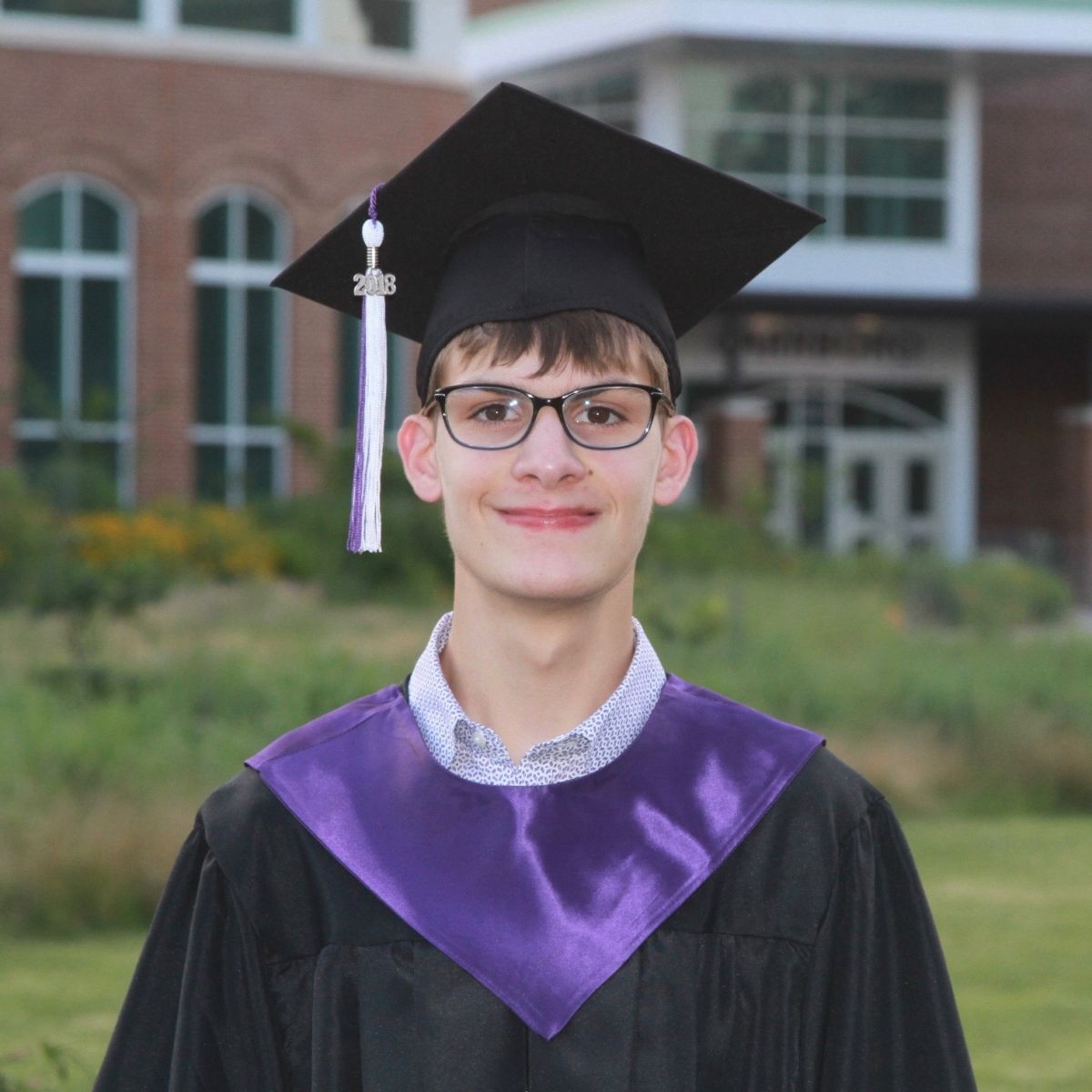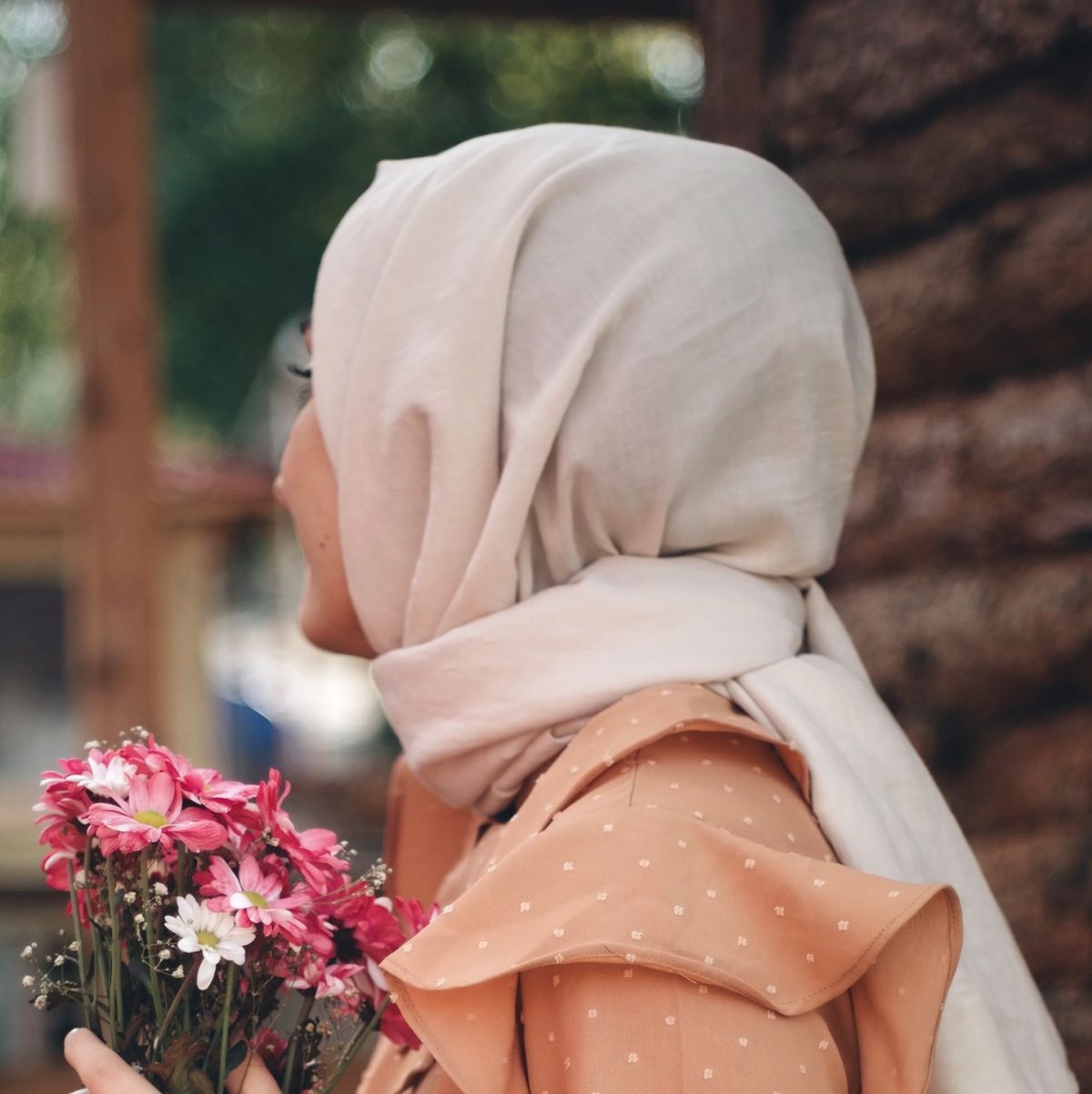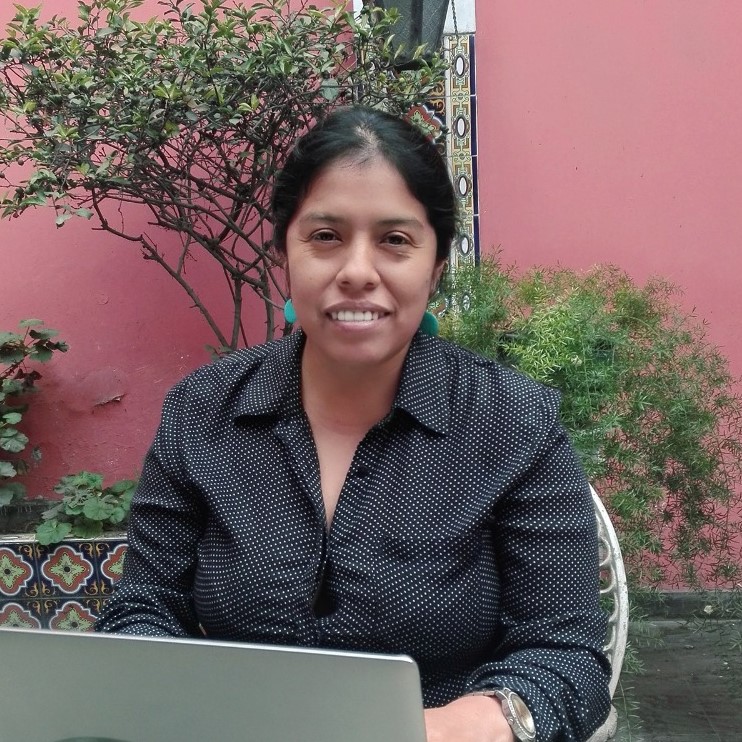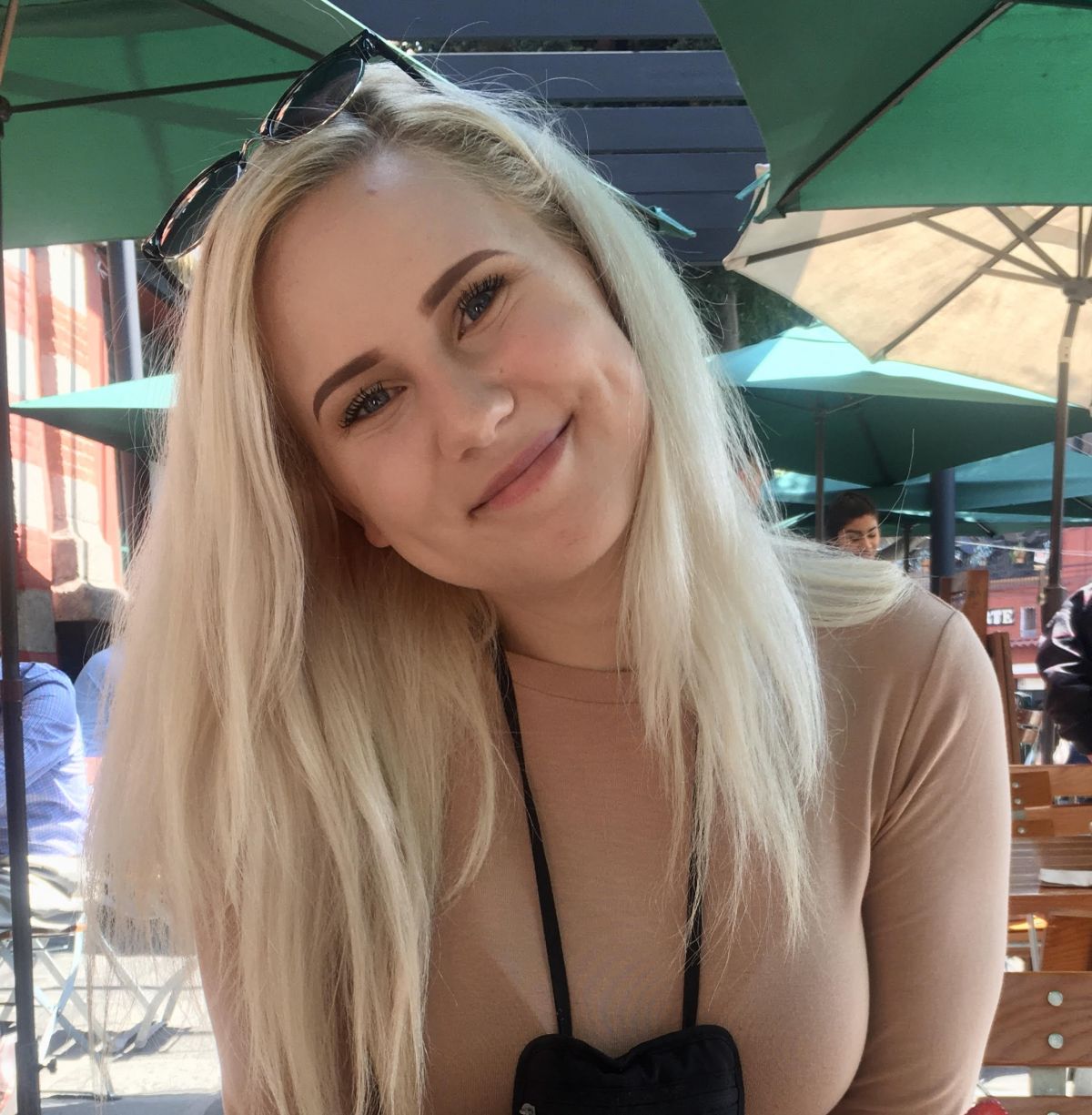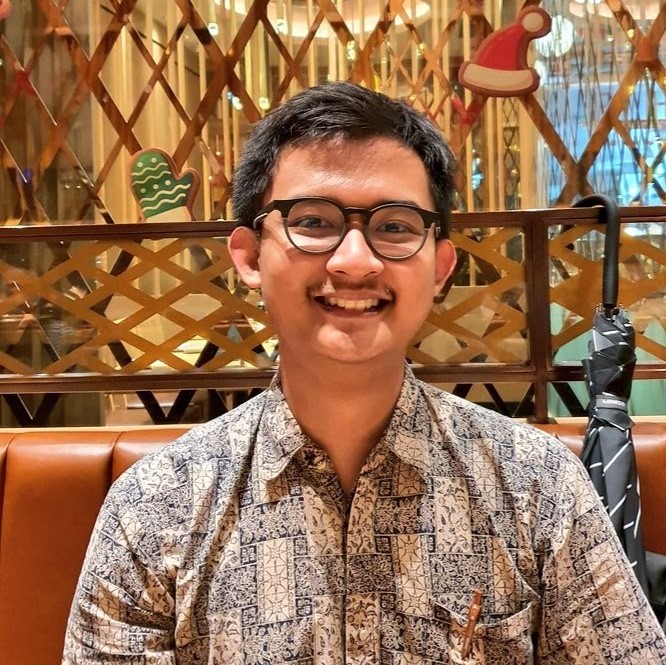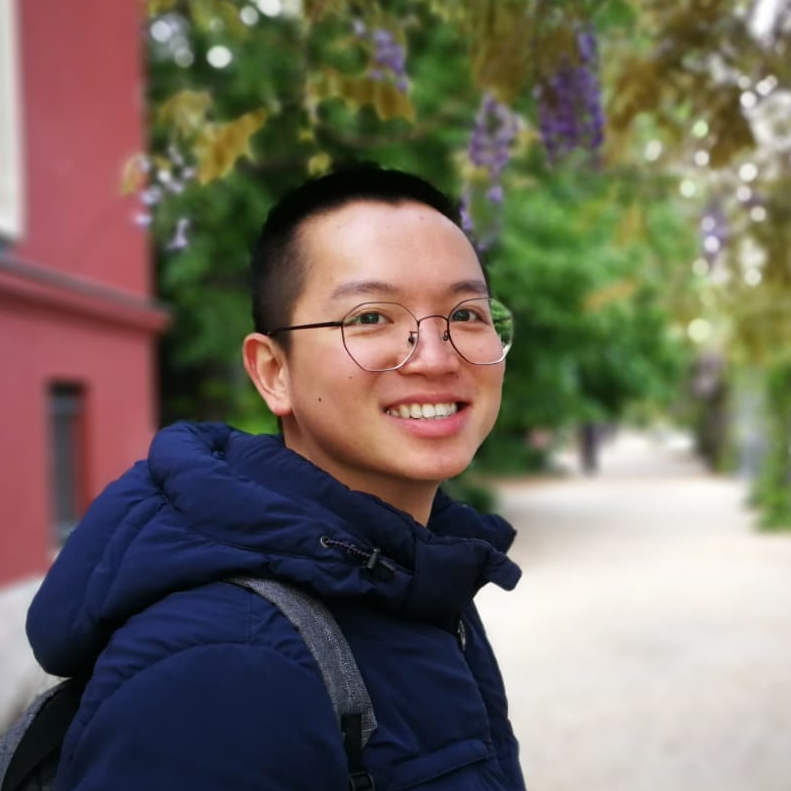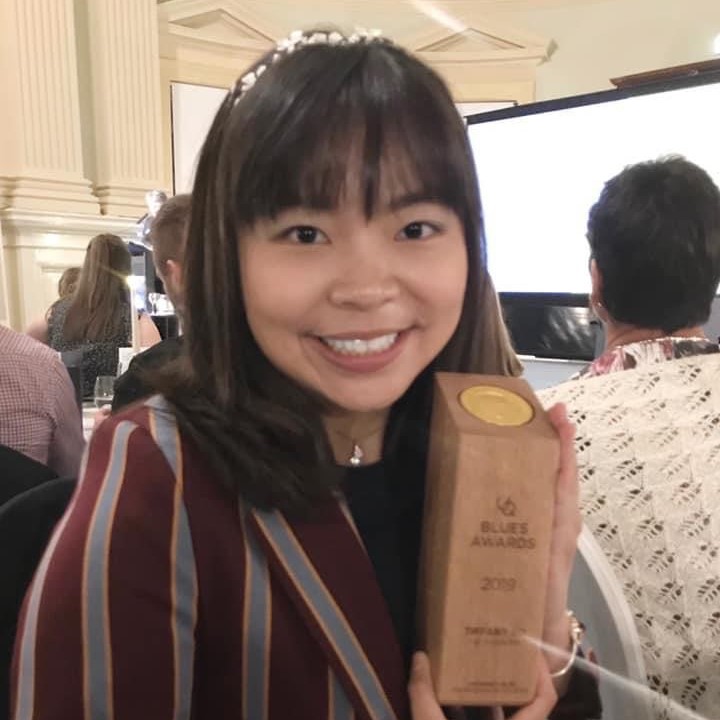සැමට අධ්යාපනය
මම විශ්වාස කරන්නේ දුබලතා සහිත ප්රජාවටද සම උසස් අධ්යාපන අවස්ථා හිමි විය යුතු බවයි.
United States, Northern America
Story by Keiron Dyck. Translated by Sanjalee Chandrasekara
Published on June 14, 2021.
This story is also available in 



මම උපත ලබන්නේ පෙනහළු ඇට්රේෂියා සමඟ ෆැලට් හි ටෙට්රලොජි නම් ආබාධයෙන් පෙළෙන හෘද රෝගියෙකු ලෙසයි. ළදරුවන් ගර්භාෂයේ සිටින විට, හදවතේ රුධිර වාහිනි යම් ආකාරයකට ඇඹරීමකට ලක් විය යුතු වුවද, මගේ හදවතට එය සිදු වී ඇත්තේ වෙනස් ආකාරයකටය. මට 1999 දී විශාල ශල්යකර්මයකට මුහුණ දීමට සිදු වූ අතර සති හතක් රෝහලේ සිටීමටද සිදු විය. මම පේස්මේකර් එකක්ද ලබා ගත්තෙමි. 1999 දී සිදු වු සැත්කමෙන් පසු මම අනිත් ළමයින්ට වඩා වෙනස් ආකාරකින් දියුණු වුණෙමි.
මේ වන විට මම ෂේක්ස්පියර්ගේ හැම්ලට් වැනි කෘතිවලට සවන් දීමට ආශා කරමි. මීට වසර කිහිපයකට ඉහතදී තිබූ මට්ටමට වඩා මම දැන් ගණිතයට දස්කම් දක්වමි. එහෙත් තවමත් මනෝමයෙන් ගණන් සෑදීමේදී හා දිගු වාක්යය කණ්ඩ කියවීමේදී මට තරමක් අපහසුතාවයක් දැනේ. සම්පූර්ණයෙන් එන්නත්කරයට ලක්වීමට ලැබීම පිළිබඳව මම බොහෝ සෙයින් සතුටට පත් වෙමි. මම දැනට සේවය කරන්නේ සිල්ලර වෙළඳසැලකයි.
මට සැම විටම අවශ්ය වූයේ විශ්වවිද්යාලයට ගොස් අධ්යාපනය හදාරා සැබැවින්ම ඉතිහාස උපාධියක් සම්පූර්ණ කර ඉතිහාසය උගන්වන ගුරුවරයෙකු වීමයි. මට සාමාන්ය විශ්ව විද්යාල ජීවිතය කළ නොහැකි නිසා එය ඇත්තෙන්ම මට කළ නොහැකි දෙයක් බව මම දැන සිටියෙමි, නමුත් මට එය සැබෑ කර ගැනීමේ සුළු ආශාවක් තිබිණි. ඉන්පසු, මම යථාර්ථවාදී වුණෙමි. ඒ පිළිබඳව හැර මම මගේ ආබාධිත අබව ගැන තවදුරටත් නොසිතා සිටීමට අදිටන් කර ගත්තෙමි.
මම ඇපලචියන් රාජ්ය විශ්ව විද්යාලයේ විවිධ හැකියාවන් සහිත විද්වතුන් (SDAP) නම් වූ වැඩසටහනෙන් උපාධිය ලබා ගත්තෙමි. SDAP යනු මධ්යස්ථ සහ මෘදු බුද්ධිමය ආබාධ සහිත පුද්ගලයින් සඳහා වන වසර දෙකක කාලයක් පවත්වනු ලබන උපාධි නොවන වැඩසටහනකි. මට එම වැඩසටහනෙන් එය සම්පූර්ණ කළ බවට සහතිකයක් ලැබුණද, ඩිප්ලෝමාවක් නොලැබුණු නිසා මට එය සුදුසුකමක් ලෙස සලකා ඉතිහාස ගුරුවරයෙකු විය නොහැක. එහෙත් එමඟින් මට විශ්වවිද්යාලය මට්ටමේ ඉතිහාස පන්තිවලට එක් වීමට හැකි විය. මහාචාර්යවරු සියළු ශිෂ්යයින්ගේ අවශ්යතා හොඳින්ම හඳුනන බැවින්, SDAP වැනි වැඩසටහන් එක් එක් සිසුන්ගේ අවශ්යතාවලට ගැලපෙන පරිදි කෙටි වැඩසටහන් ආකාරයට සකස් විය යුතුය. මෙම වැඩසටහන් ආබාධ සහිත පුද්ගලයින් වුවද විශ්ව විද්යාලයට ගොස් ලෝකය සහ තමන් ගැනම වැඩිදුර අධ්යනය කීරීම සඳහා බෙහෙවින් උපකාරී වේ.
"සෑම විශ්වවිද්යාලයකම SDAP වැනි වැඩසටහනක් ක්රියාත්මක විය යුතුය."
මගේ දැක්මට අනුව, සෑම විශ්වවිද්යාලයකම SDAP වැනි වැඩසටහනක් ක්රියාත්මක විය යුතුය. මෙවැනි වැඩසටහන් එක්සත් ජනපදයේ පමණක් නොව ලොව පුරා ම ක්රියාත්මක විය යුතුය! ඒ SDAP වැඩසටහනට අයදුම් කිරීමට අවස්ථාව ලැබෙන්නේ ද උතුරු කැරොලිනාවේ සිසුන්ට පමණක් බැවිනි.
මා පැවසීමට උත්සාහ කරන දේ වරදවා වටහා නොගන්න. ජෝර්ජ් එච්. ඩබ්ලිව්. බුෂ් 1990 ආබාධ සහිත ඇමරිකානුවන්ගේ පනත (ADA) අත්සන් කිරීමෙන් පසු එක්සත් ජනපදයේ ආබාධ සහිත පුද්ගලයින්ගේ තත්වය වැඩිදියුණු වී ඇත. එය ඉතාමත් හොඳ දියුණුවකි. ADA මඟින් සිදුව ඇත්තේ ආබාධ සහිත පුද්ගලයින්ට වෙනස්කම් කිරීම නීති විරෝධී බව ලේඛනගත කිරීම පමණි. නමුත් දැන් එය ප්රායෝගිකව බලාත්මක කළ යුතුය. එය සරල යැයි පෙනේ, නමුත් වර්තමානයේ එවැනි බලාත්මක බවක් නොමැති නිසා පැහැදිලිවම එය දුෂ්කර වනු ඇත. නිදසුනක් වශයෙන්, මගේ මව සේවය කරන්නේ කෙනෙකුට රෝද පුටුවකින් යා නොහැකි අකාරයේ පල්ලියක ය. පල්ලිය වර්ෂ 1926 දී ඉදිකරන ලද බැවින් එය ADA සමඟ අනුකූල වීමක් සිදු වී නැත. දැන් එම පල්ලිය එහි ඓතිහාසික තත්ත්වය නිසා ප්රතිසංස්කරණය කිරීම අපහසුය. මෙහිදී ඇතිවන ගැටලුව වන්නේ: ඓතිහාසික තත්ත්වයට අනුකූලව ඕනෑම කෙනෙකුට ප්රවේශ විය හැකි ආකාරයේ ගොඩනැගිලි සාදන්නේ කෙසේද යන්නයි?
න්යායාත්මකව දේවල් නිවැරදි කිරීම ඉතාමත් පහසු ය, නමුත් ආබාධිත අයිතිවාසිකම් ප්රායෝගිකව ක්රියාවට නැංවීමට අපට බොහෝ කල් ගත වනු ඇත. මම පෙරදී ඉගෙන ගත් උසස් පාසලේහි මට වෙනස් කිරීමට අවශ්ය එක් දෙයක් වන්නේ; සියලුම සිසුන්ට ඔවුන් කැමති මට්ටමින් ඔවුන්ට අවශ්ය පාඨමාලා හැදෑරීමට අවස්ථාව සැලසීමයි. මම උසස් පාසලේ සිටියදී, ආබාධ සහිත සිසුන් සඳහා වූ වෘත්තීය අධ්යයන පාඨමාලා[1] (OCS) වැඩසටහනකට මම සහභාගී වුණෙමි. OCS වැඩසටහන මඟින් වෘත්තීය සහ ජීවන කුසලතා ඉගැන්වීම කෙරෙහි අවධානය යොමු කරන අතර, මම OCS වැඩසටහනට සහභාගී වන ශිෂ්යයෙකු වූ බැවින් ගෞරව හෝ උසස් පාඨමාලා හැදෑරීමේ අවස්ථාව මට අහිමි විය. OCS වැඩසටහන මා විසින් ක්රියාත්මක කරන ලද වැඩසටහනක් වූවේ නම්, සෑම සිසුවෙකුටම ඔවුන්ගේම අධ්යයන පාඨමාලා තීරණය කිරීමට හැකි වන පරිදි මම එය SDAP වැඩසටහනේ මට්ටමටම වැඩි දියුණු කරන්නෙමි.
SDAP වැනි වැඩසටහන් විශිෂ්ට වන්නේ ඔවුන් ආබාධ සහිත පුද්ගලයින් සහ ආබාධ නොමැති පුද්ගලයින් ඒකාබද්ධ කරන බැවිනි. එවිට අපි සෑම කෙනෙකුටම එකිනෙකාගෙන් ඉගෙන ගැනීමට ද අවස්ථාව ලැබේ.
[1] OCS යනු උතුරු කැරොලිනාවේ ආබාධ සහිත සිසුන්ට ලබා ගත හැකි නවීකරණය කරන ලද උසස් පාසල් විෂය මාලාවකි. වැඩි විස්තර සඳහා: https://www.dpsnc.net/Page/265
How does this story make you feel?
Follow-up
Do you have any questions after reading this story? Do you want to follow-up on what you've just read? Get in touch with our team to learn more! Send an email to [email protected].
Talk about this Story
Please enable cookies to view the comments powered by Disqus.
Subscribe to our Monthly Newsletter
Stay up to date with new stories on Correspondents of the World by subscribing to our monthly newsletter:
Other Stories in සිංහල
Explore other Topics
Get involved
At Correspondents of the World, we want to contribute to a better understanding of one another in a world that seems to get smaller by the day - but somehow neglects to bring people closer together as well. We think that one of the most frequent reasons for misunderstanding and unnecessarily heated debates is that we don't really understand how each of us is affected differently by global issues.
Our aim is to change that with every personal story we share.
Community Worldwide
Correspondents of the World is not just this website, but also a great community of people from all over the world. While face-to-face meetings are difficult at the moment, our Facebook Community Group is THE place to be to meet other people invested in Correspondents of the World. We are currently running a series of online-tea talks to get to know each other better.











